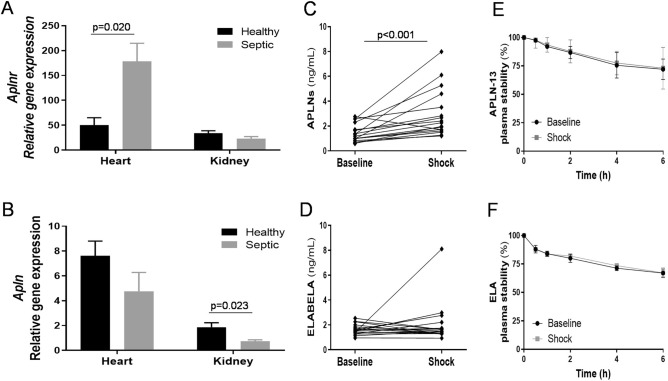Figure 3.
Ovine fecal peritonitis (FP) with septic shock activates the endogenous apelin system without inducing plasma peptide instability. (A,B) Ribonucleic acids were extracted from tissues and real-time PCR was performed. Heart and kidney apelin receptor -Aplnr- and apelin -Apln- mRNA expressions in healthy (black bar, n = 6) and septic sheep (gray bar, n = 6). The results are expressed as the mean ± SEM. FP induced increased expression of APJ in the heart but decreased expression of APLN in kidneys. (C,D) EDTA-preserved blood samples from the ovine FP model were used to perform specific enzymatic immunoassays (after extraction for ELA determination). APLN (all isoforms and moieties) and Elabela (ELA) plasma levels at the baseline and shock time points (individual data plots display, n = 18). (E,F) Stability of APLN-13 and ELA exogenously added to sheep plasma samples collected at the baseline and shock time points (n = 18). Stability was expressed as the residual percentage of non-degraded peptides. The results are expressed as the mean ± SEM. There was no obvious accelerated degradation of the two peptides. Statistical analyses were performed with a paired Student’s t-test (normally distributed variables) with exact p values for (A,B) and p < 0.001 for (C).

